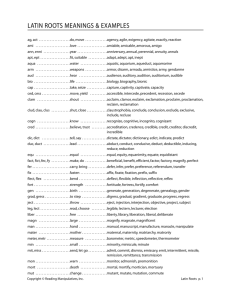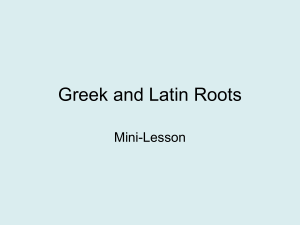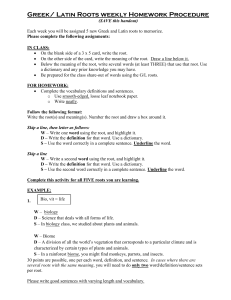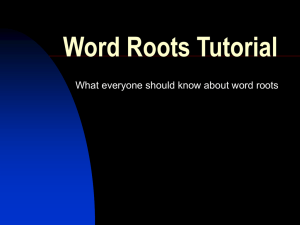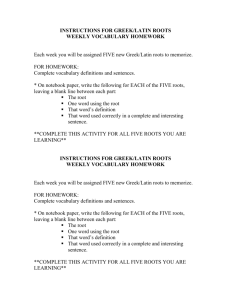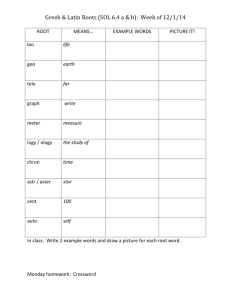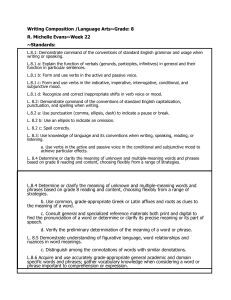© KC Distance Learning Slide 1 Greek and Latin Roots Slide 2 What
advertisement
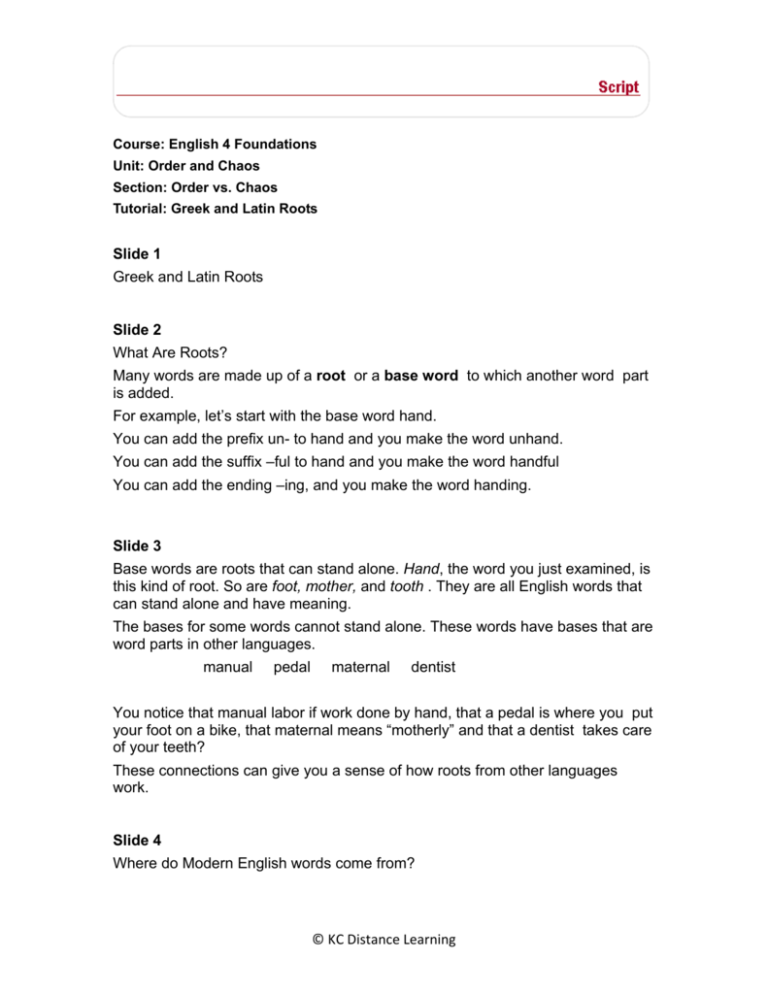
Course: English 4 Foundations Unit: Order and Chaos Section: Order vs. Chaos Tutorial: Greek and Latin Roots Slide 1 Greek and Latin Roots Slide 2 What Are Roots? Many words are made up of a root or a base word to which another word part is added. For example, let’s start with the base word hand. You can add the prefix un- to hand and you make the word unhand. You can add the suffix –ful to hand and you make the word handful You can add the ending –ing, and you make the word handing. Slide 3 Base words are roots that can stand alone. Hand, the word you just examined, is this kind of root. So are foot, mother, and tooth . They are all English words that can stand alone and have meaning. The bases for some words cannot stand alone. These words have bases that are word parts in other languages. manual pedal maternal dentist You notice that manual labor if work done by hand, that a pedal is where you put your foot on a bike, that maternal means “motherly” and that a dentist takes care of your teeth? These connections can give you a sense of how roots from other languages work. Slide 4 Where do Modern English words come from? © KC Distance Learning As a result of wars and invasions that happened as far back as Roman times, Modern English comes from many different sources. The most important sources are French, Latin, and Greek. English is constantly growing, and many new words enter the language each year. Today, when scientists and marketing people make up new words—words like geology for the study of the earth and cosmetology for the study of cosmetics-they often base the new words on Latin and Greek source words. Slide 5 Knowing Latin and Greek roots can sometimes help you to guess the meaning of an unfamiliar word. Let’s look at the word geology. Pretend for a second you don’t know what it means. Geology actually has two roots, geo- and –logy The geo- part means “the earth” and –logy means “study of.” Thus, the word geology means, “study of the earth.” More important, knowing roots helps you to recognize word families. Word families all share the same root. corrupt interrupt abruptly eruption Notice that the same four letters– R-U-P-T—are in each word All four words, corrupt interrupt, abruptly, eruption, are part of the –rupt word family. The Latin root -rupt means “break.” Slide 6 Sometimes the connection between the modern meaning of the word and the meaning of the root is not obvious. On the surface, the meanings of such words such as corrupt and eruption seem to have nothing in common. But let’s look a little further. © KC Distance Learning The root meaning of the Latin word that corrupt comes from means “broken into pieces.” You get a sense of that meaning when you learn that a corrupt person lacks integrity or wholeness. A corrupt person is “broken.” Similarly, an eruption is lava or something else that “breaks out” of the volcano. Why is the original meaning of the root so deeply buried in the Modern English word? Latin and Greek roots were first the roots of words in their original languages. Later, when these words entered English, they became the roots of the English words derived from them. Slide 7 If you find roots interesting, look at the etymology, or word history, in the dictionary. Dictionary.com often provides words histories. Many print dictionaries do, too. Word histories often show where a word comes from and how its meaning has changed over time. One of the roots you will study in the next lesson is c-o-s-m /kosm/, which means “universe” or “world” in Modern English words. Its original meaning in Greek was “order.” Today, a cosmetic is “a product to beautify the skin.” Calling a repair cosmetic means that it is “skin deep”—superficial and designed to make something more attractive than it is. Here is the etymology of cosmetic. cos.met.ic French cosmétique, from Greek kosmētikos, skilled in arranging, from kosmētos, well-ordered, from kosmein, to arrange, from kosmos, order. Now you are ready to study some Latin and Greek roots on your own. © KC Distance Learning


